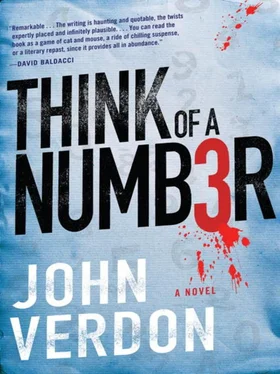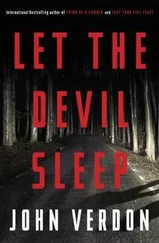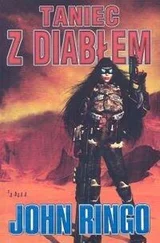“The purpose of life is to get as close as we can to other people.” He’d said it in a surprisingly straightforward way, as though he were pointing out that trucks were for transportation.
On another occasion he revealed, in the same matter-of-fact tone, the corollary: “An isolated life is a wasted life.”
At the age of seventeen, Gurney hadn’t been sure what the man was talking about. It sounded deep, but its depth was shadowy, and he couldn’t see anything in it. He still didn’t entirely grasp it at the age of forty-seven-at least not the way he grasped the purpose of trucks.
Forgetting about the closet, he went back down to the kitchen. Entering from the darker hallway, he found the room intensely bright. The sun, now well above the trees in a cloudless sky, shone directly through the southeast-facing French doors. The pasture had been transformed by the new snow into a dazzling reflector, throwing light up into corners of the room rarely illuminated.
“Your coffee is ready,” said Madeleine. She was carrying a balled-up sheet of newspaper and a handful of kindling to the woodstove. “The light is so magical. Like music.”
He smiled and nodded. Sometimes he envied her ability to be enthralled by nature’s glittering bits and pieces. Why, he wondered, had such a woman, such an enthusiast, such a natural aesthete in the admirable sense of the word, a woman so in touch with the glory of things, married an unspontaneous and cerebral detective? Had she imagined that one day he’d cast aside the gray cocoon of his profession? Had he colluded in that fantasy, imagining that in a pastoral retirement he’d become a different person?
They made an odd couple, he thought, but surely no odder than his parents. His mother with all her artistic inclinations, all her little flight-of-fancy hobbies-papier-mâché sculpture, fantastical watercolor painting, origami-had married his father, a man whose essential drabness was interrupted only by sparks of sarcasm, whose attention was always elsewhere, whose passions were unknown, and whose departure for work in the morning seemed to please him far more than did his return home in the evening. A man who in his quest for peace was forever leaving .
“What time do you have to leave for your meeting?” asked Madeleine, displaying her impossibly precise sensitivity to his passing thoughts.
Final arguments
Déjà vu.
The sign-in procedure was the same as it had been before. The building’s reception area-ironically designed to repel-was as antiseptic as a morgue but less peaceful. There was a new guard in the security booth, but the lighting gave him the same chemotherapy pallor as it had the last one. And, once again, Gurney’s guide to the claustrophobic conference room was the hair-gelled, charming-as-dirt Investigator Blatt.
He preceded Gurney into the room, which was as Gurney remembered it, except it seemed shabbier. There were stains he hadn’t noticed before on the colorless carpeting. The clock, not quite vertical and too small for the wall, read twelve noon. As usual, Gurney was exactly on time-less a virtue than a neurosis. Earliness and lateness both made him uncomfortable.
Blatt took a seat at the table. Wigg and Hardwick were already there in the same chairs they’d had in the first meeting. A woman with an edgy expression was standing by the coffee urn in the corner, obviously unhappy that Gurney hadn’t been accompanied by whomever she was waiting for. She looked so much like Sigourney Weaver that Gurney wondered if she was making a conscious effort.
The three chairs nearest the center of the oblong table had been tilted against it, as before. As Gurney headed for the coffee, Hardwick grinned like a shark.
“Detective First Class Gurney, I’ve got a question for you.”
“Hello, Jack.”
“Or, better yet, I’ve got an answer for you. Let’s see if you can guess what the question is. The answer is ‘a defrocked priest in Boston.’ To win the grand prize, all you got to do is figure out the question.”
Instead of responding, Gurney picked up a cup, noticed it wasn’t quite clean, put it back, tried another, then a third, then went back to the first.
Sigourney was tapping her foot and checking her Rolex, a parody of impatience.
“Hi,” he said, resignedly filling his stained cup with what he hoped was antiseptically hot coffee. “I’m Dave Gurney.”
“I’m Dr. Holdenfield,” she said, as if she were laying down a straight flush to his pair of deuces. “Is Sheridan on his way?”
Something complex in her tone got his attention. And “Holdenfield” rang a bell.
“I wouldn’t know.” He wondered what sort of relationship might exist between the DA and the doctor. “If you don’t mind my asking, what sort of doctor are you?”
“Forensic psychologist,” she said absently, looking not at him but at the door.
“Like I said, Detective,” said Hardwick, too loudly for the size of the room, “if the answer is a defrocked Boston priest, what’s the question?”
Gurney closed his eyes. “For Christ’s sake, Jack, why don’t you just tell me?”
Hardwick wrinkled his face in distaste. “Then I’d have to explain it twice-for you and for the executive committee.” He tilted his head at the tilted chairs.
The doctor looked again at her watch. Sergeant Wigg looked at whatever was happening on her laptop screen in response to the keys she was tapping. Blatt looked bored. The door opened, and Kline entered, looking preoccupied, followed by Rodriguez, carrying a fat file folder and looking more malevolent than ever, and Stimmel, looking like a pessimistic frog. When they were seated, Rodriguez gave Kline a questioning glance.
“Go ahead,” said Kline.
Rodriguez fixed his gaze on Gurney, his lips tightening into a thin line.
“There’s been a tragic development. A Connecticut police officer, dispatched to the home of Gregory Dermott, reportedly at your insistence, has been killed.”
All eyes in the room, with various degrees of unpleasant curiosity, turned toward Gurney.
“How?” He asked the question calmly, despite a twinge of anxiety.
“Same way as your friend.” There was something sour and insinuating in his tone, which Gurney chose not to respond to.
“Sheridan, what the hell is going on here?” The doctor, who was standing at the far end of the table, sounded so much like the hostile Sigourney of Alien that Gurney decided it must be on purpose.
“Becca! Sorry, didn’t see you there. We got a little tied up. Last-minute complication. Apparently another murder.” He turned to Rodriguez. “Rod, why don’t you bring everyone up to date on this Connecticut cop thing.” He gave his head a quick little shake, like there was water in one of his ears. “Damnedest case I’ve ever seen!”
“Damn right,” echoed Rodriguez, opening his file folder. “Call was received at eleven twenty-five this morning from Lieutenant John Nardo of the Wycherly, Connecticut, PD regarding a homicide on the property of one Gregory Dermott, known to us as the postal-box holder in the Mark Mellery case. Dermott had been provided with temporary police protection at the insistence of Special Investigator David Gurney. At eight A.M. this morning-”
Kline raised his hand. “Hold on a second, Rod. Becca, have you met Dave?”
“Yes.”
The cool, clipped affirmative seemed designed to ward off any expanded introduction, but Kline went on, anyway.
“You two should have a lot to talk about. The psychologist with the most accurate profiling record in the business and the detective with the most homicide arrests in the history of the NYPD.”
Читать дальше












